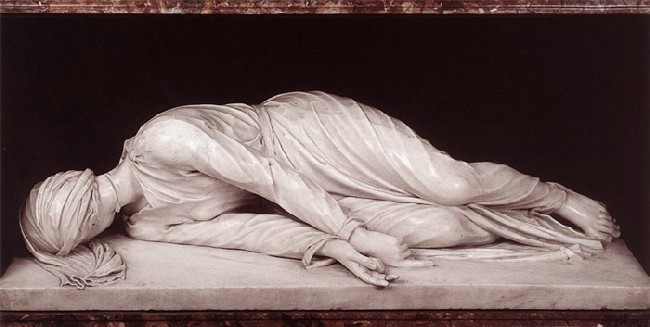My wife and I went to the monastery recently for a special 5:00 pm vespers. For this vespers, the monks walk into the church in a slow procession — side by side in two lines. They are not gloomy or stiff. They are not hesitant, they are not hurried.
The monks convey the confidence of flowing grace. It is a regular part of what they have done many times — but they know that this is something important — they are together, walking in as one community. The entire procession is a single, free, and purposeful gesture.
The monks are cloaked in their black robes as they always are. As they move into the church and up the center aisle, I think about the stability of this ancient form of monastic worship, the divine office.
As each pair reaches the top of the few steps to the raised area where the altar and choir stalls are located, the first two monks bow to the altar in unison and then turn and bow to each other. Then the monk on the left goes to the choir stalls on the left and monk on the right goes to the choir stalls on the right. The monks are now looking across the altar — seeing Christ in each other.
This graceful movement of coming up the steps, bowing twice, and walking to their seats continues until all the monks are seated and the divine office is about to begin.
But for me, as the last two monks walk into the church, in my mind’s eye I can still see the line of monks continuing on back — more than a 1,000 years into the past — day after day of monks who also walked silently into a church and sang the psalms — those ancient songs to God. The monks in this abbey church today deserve much respect in my view, and I know that I am very fortunate to be here to watch and pray with them.
“O God, come to my assistance.
O Lord, make haste to help me.”
Everyone bows.
“Glory be to the Father,
and to the Son,
and to the Holy Spirit.
As it was in the beginning,
is now, and ever shall be,
world without end. Amen”
_________________________________
Notes:
The verse:
“O God, come to my assistance.
O Lord, make haste to help me”
comes from Psalm 70 and was quoted by St. John Cassian (360-435 AD) as the verse that should be repeated frequently by a monk to keep his mind fixed on God. According to Cassian the psalm-70 phrase was used by the earliest desert fathers to help them in all situations.
John Cassian’s accounts and interpretations of the most ancient wisdom of the desert fathers were important in the “transmission of the culture of Egyptian monasticism into the early medieval west.” It’s a long procession of monks.
Monday, November 10, 2008
The line forms at the beginning. A Benedictine oblate blog
Subscribe to:
Post Comments (Atom)







How delightful! Brought back memories when I spent a few days at a time at St. Leo, when I was working in Ocala. What a refreshing blog? Hopefully, I will be able to spend 2 weeks or a month in the future - it's a distance from Canada.
ReplyDeleteDo visit my blog and comment.Thanks